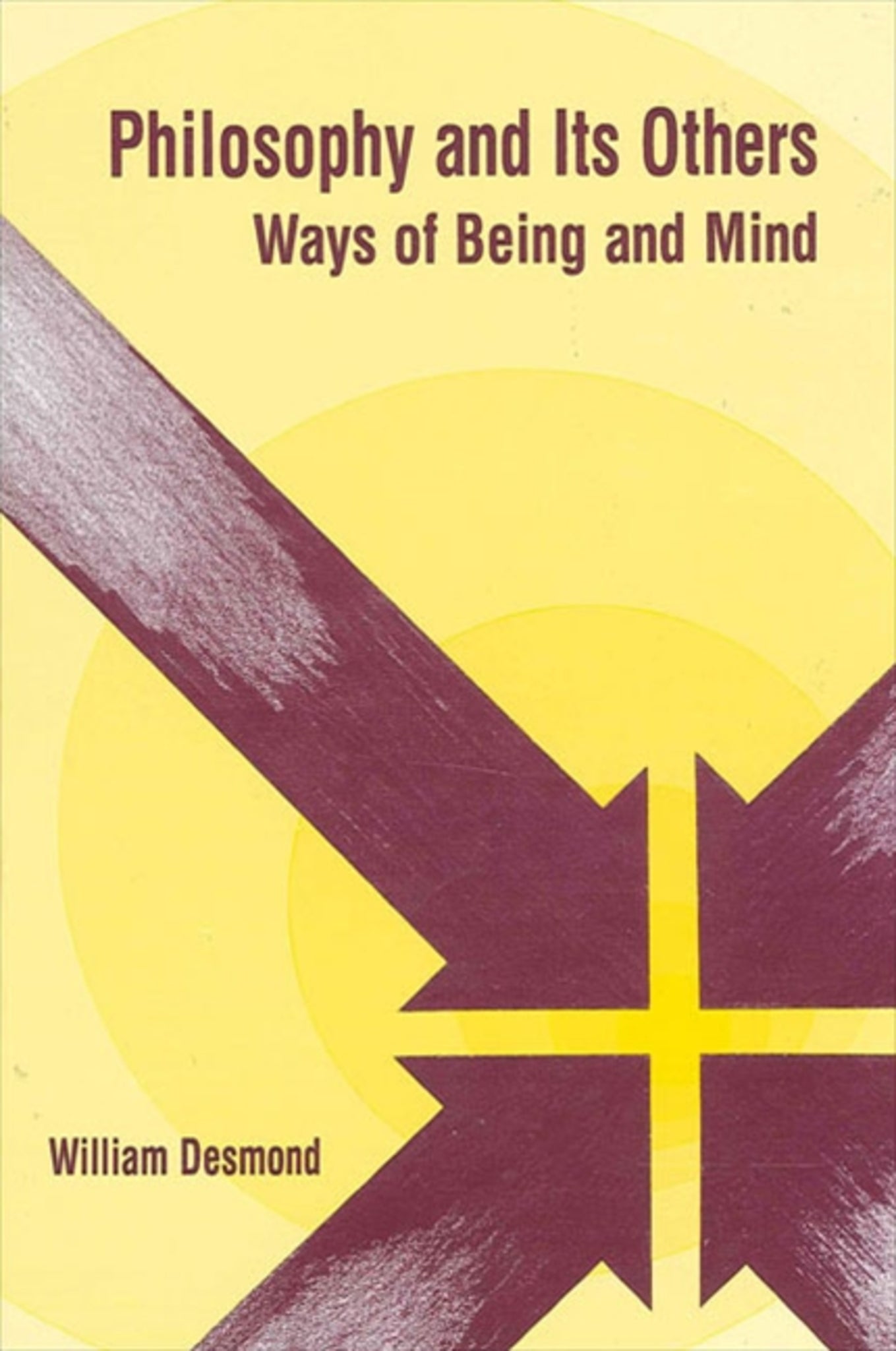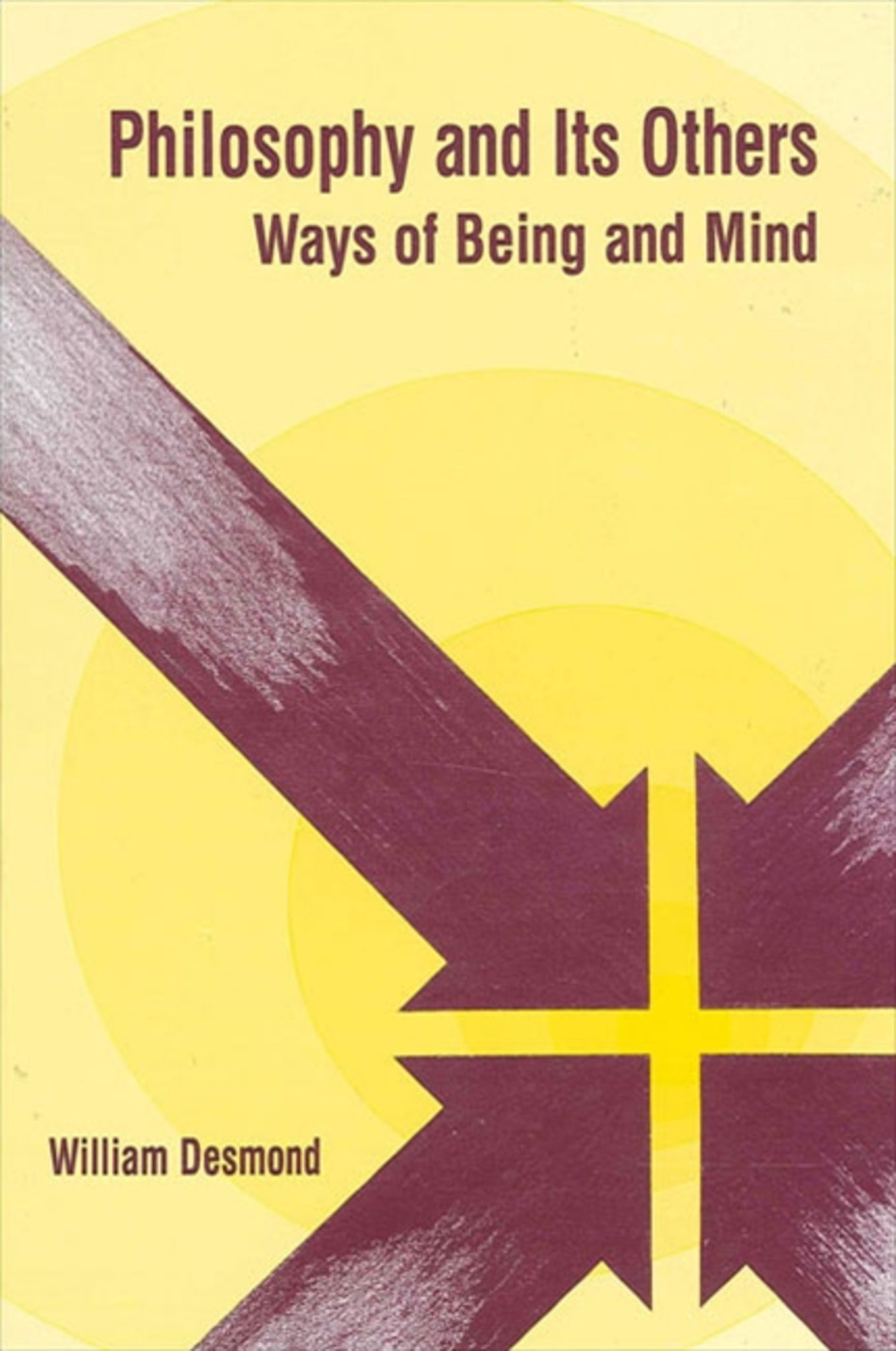We're sorry. An error has occurred
Please cancel or retry.
Philosophy and Its Others

Some error occured while loading the Quick View. Please close the Quick View and try reloading the page.
Couldn't load pickup availability
- Format:
-
05 July 1990

Philosophy and its Others responds to the widespread sense that philosophy must renew its intellectual community with other significant ways of being and mind. The author articulates philosophy's community of mind with the aesthetic, the religious, and the ethical, without losing any of its own distinctive voice. He develops an original and constructive position between these extremes: the Hegelian extreme which reduces the plurality of others to a dialectical totality and the Wittgensteinian and deconstructive options that celebrate plurality, but without a proper sense of the connectedness of philosophy and its others.


"I am impressed by this book's originality, its power of thought and imagination, its wisdom, its perceptiveness about matters large and small, its judiciousness. Desmond's comments concerning various figures and schools in the history of philosophy and culture, including the fashionable post-modernists and deconstructionists like Derrida, are marked by profound understanding, penetration, and critical acumen."— George L. Kline, Bryn Mawr College
"The author is tackling one of the most important problems of contemporary thought. Philosophy, as taken up and developed by a professional elite, is in danger of losing touch with the concrete dimensions of experience that should serve as its target and its ground. In Philosophy and Its Others, William Desmond opens himself to a richer understanding of being human by drawing the reader's attention to the irreducible complexity of the aesthetic, religious, and ethical ways of being that blend with and support the reflective awareness that is philosophy's special province. Desmond brings a full-bodied sense of the varied texture of experience to his work, and sustains a high level of philosophical energy throughout." — Brian J. Martine, The University of Alabama in Huntsville
"What I like most about this manuscript are a) the fact that it addresses what are probably the two central themes of contemporary philosophical discussion, the nature of philosophy and the meaning of otherness, b) that it does so in such a creatively different way, and c) that it brings prodigious scholarship to bear on this issue, yet wears that scholarship so lightly that it plays but a supporting role." — Merold Westphal, Fordham University
Preface
Introduction
Unity and Plurality: The Wittgensteinian and Hegelian Option
Unity and Plurality: The Metaxological View
Ways of Being and Mind
Structure of the Work
1. Philosophy and Its Others: On Ways of Being Philosophical
Philosophy's Felo de Se
Philosophy as Middle Mindfulness
Philosophy and the Scholar
Philosophy and the Scientist
Philosophy and the Poet
Philosophy and the Priest
Philosophy and the Revolutionary
Philosophy and the Hero
Philosophy and the Sage
Philosophy as Metaxological
2. Being Aesthetic
I. The Immediacy of the Aesthetic
Dualism, the Body and Being's Intimacy
Purposeless Preening and the Celebrating Body
II. Aesthetic Self-mediation
Beauty and the Adorning Self
Beauty and Dignity
III. Art and the Aesthetic Middle
Imagination as Metaxological
Being Imitative, Being Creative
IV. Loss of the Aesthetic Middle
Excessive Subjectivity: Creativity as Negativity
The Cult of Novelty
V. Art and Metaxological Otherness
Art and the Community of Others
Aesthetic Mindfulness: Art's Tolerance of Otherness
3. Being Religious
I. The Immediacy of the Sacred
The Double Image
Ancestor Worship and the Sacred King
II. The Mediation of the Religious Middle
The Open Dialectic of Trust and Distrust
The Double Piety: Sacred Terror and Gratitude
III. Metaxological Openness to Sacred Otherness
Naming and Not Naming: The Problem of Anthropomorphism
The Middle Way and Mystery
IV. Religious Inwardness and the Metaxological Mediation of Otherness
The Mystic and Religious Inwardness
The Prophet and Social Otherness
V. The Problematic Religious Middle
Miracles and Sects
Warring Religions
Sacramental Earth?
4. Being Ethical
I. The Immediacy of the Ethical Middle
The Dualism of Being and the Good: On Mind and Giants
Shame and the Other: On Feeding and Dining
II. The Self-mediation of the Ethical Middle
Free Desire: What is to be Done?
Practical Wisdom and the Intermediate
Work, Ethical Self-mediation and Dignity
III. Ethical Inwardness and the Middle
Persons and Intrinsic Value
IV. The Ethical Intermediation of Otherness
Ethical Will and Otherness: Two Loves
Ethical Civility and Otherness
On Justice and Power
V. Ethical Community and Recalcitrant Otherness
Malign(ed) Others: Criminals, Wolfmen
The Gyre of Energy
5. Being Mindful: Thought Thinking Its Other
I. First Meditation: Being Mindful and Logic
Logic, Mindfulness and Unruly Otherness
Logic, Being, and Mind
Logic, Otherness and Power
II. Second Meditation: Being Mindful and Solitude
Solitude and Inward Thisness
Negative Otherness and the Desert
Country and City Solitude
III. Third Meditation: Being Mindful and Failure
Philosophy and Failure
Radical Failure: Modern Success and Stoic Strategy
Art and Failure
6. Being Mindful: Thought Singing Its Other
I. Song of Golden Being
II. Sings of the Elemental
The Elemental and Otherness
Defiant Simplicity
Loss of the Elemental: Denatured Being
III. Songs of Death and Time
Sleep, Death, The Elemental
Age: Elemental Time as Fleshed
Reversed Time
IV. Song of Breakthrough
V. Song of Festive Being
VI. Songs of Idiot Wisdom
Folly and Mind's Other
The Reticence of Power
Idiot Wisdom
Notes
Bibliography
Index



